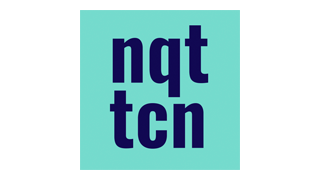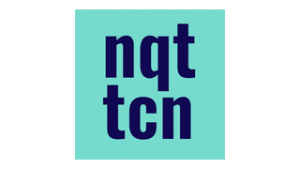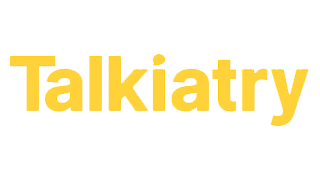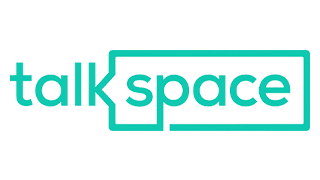Table of Contents
- The Handbook Team has spent over 10,000 hours researching over 70 online therapy platforms. Our testers sign up for the 20 most popular platforms to bring you our top picks.
- We conduct focus groups, surveys, and interviews with mental health experts to understand what a diverse range of individuals want in an online therapy platform.
- We explored the National Queer and Trans Therapists of Color Network directory, contacted listed therapists directly, and reached out to customer service to gauge their responsiveness.
- Learn more about how we test the National Queer and Trans Therapists of Color Network.
Key takeaways
- We recommend the National Queer and Trans Therapists of Color Network for anyone specifically seeking a therapist who belongs to the BIPOC and LGBTQ+ communities.
- The rates of therapists listed in the directory can vary, but we noticed that most practitioners charge between $65–$250 per session out of pocket.
- The NQTTCN doesn’t host online therapy sessions directly but can connect you with a therapist offering telehealth services.
Despite growing access to mental health care through online therapy, some people may not seek the support they need due to stigma. “In many communities, especially communities of color, seeking out support from a therapist can be seen as a sign of weakness,” says ShaQuan Read, licensed mental health counselor specializing in racial trauma and adverse childhood experiences. “Stigma and the belief that we are supposed to be able to handle things on our own can limit folks in seeking out support.”
Research has shown that racism and homophobia can impact your mental health, which can make seeking mental health care especially important in the face of discrimination.
According to a recent research review, socially identifying with your therapist may lead to a better working relationship, as does identifying with the same gender. If you identify as a queer or trans person of color (QTBIPOC), choosing a therapist from the same community may allow you to more comfortably share your thoughts and emotions.
If you’re ready to begin your search for a therapist who understands your experiences, the National Queer and Trans Therapists of Color Network (NQTTCN) could be a good place to start. Learn more about the NQTTCN in our review.
National Queer and Trans Therapists of Color Network highlights
What is NQTTCN?
The National Queer and Trans Therapists of Color Network is a nonprofit organization that offers a directory of over 500 QTBIPOC therapists located throughout the United States and Canada.
Founded in 2016 by licensed clinical social worker Erica Woodland, the NQTTCN’s directory aims to facilitate mental health care for people in the QTBIPOC community and promote “healing justice.” Healing justice is a framework that addresses the effects of oppressive systems like racism and colonization and works to transform them through affirming social justice-based care.
How does the National Queer and Trans Therapists of Color Network (NQTTCN) work?
The National Queer and Trans Therapists of Color Network doesn’t offer online therapy sessions directly, unlike other brands we’ve reviewed. Instead, they provide a database connecting you with QTBIPOC therapists in private practice. Some therapists offer in-person sessions only, while others provide online sessions.
How to sign up for NQTTCN
The NQTTCN doesn’t require a sign-up process to use the directory. You can access it freely by selecting “Mental Health Directory & Resources” on its homepage.
Where are therapists available on NQTTCN?
To find a therapist on the National Queer and Trans Therapists of Color Network, you’ll start by inputting your zip code, city, or state.
During testing, we found practitioners available in Canada, Washington, DC, and the following 39 states:
- Alabama
- Alaska
- Arizona
- Arkansas
- California
- Colorado
- Connecticut
- Delaware
- Florida
- Georgia
- Hawaii
- Idaho
- Illinois
- Indiana
- Kentucky
- Louisiana
- Maryland
- Massachusetts
- Michigan
- Minnesota
- Missouri
- Mississippi
- Nevada
- New Jersey
- New York
- North Carolina
- Ohio
- Oklahoma
- Oregon
- Pennsylvania
- Rhode Island
- South Carolina
- Tennessee
- Texas
- Utah
- Vermont
- Virginia
- Washington
- West Virginia
Keep in mind that the number of therapists varies between states. We also found that searching by state may not always reveal the full number of therapists by default. For example, when we search “Georgia, United States,” only one therapist shows up. However, expanding the search radius from 25 miles to 115 reveals two more Georgia therapists.
If you want to search by state more precisely, the NQTTCN suggests clicking the link for each state at the bottom of the main directory page. However, we discovered that not every state the directory has therapists in shows up in that list on the main page. You may need to search more on the NQTTCN than on other platforms to see how many providers are available in your area.
How to match with an NQTTCN therapist
All therapist profiles have an extremely detailed bio, which includes information on their background, credentials, therapy specialties (such as cognitive behavioral therapy), and specific QTBIPOC identity.
We also appreciate that every therapist’s contact information, which may include phone numbers, emails, and website links, was readily accessible at the top of the page. This made it easy to find and connect with an affirming practitioner.
From one of our NQTTCN testers
“In a culture where racism (and othering) can increase anxiety-related disorders, it is helpful for people to have a place where they can heal in the context of their identity… I would recommend this platform to anyone who is seeking a QTBIPOC therapist.”
The directory features some filters for search results, including therapists who provide online video sessions or offer sliding scales for payments. But we find these options somewhat limited.
For example, you can’t filter for a practitioner’s specific ethnicity, gender identity, therapy specialty, or appointment availability. Instead, you have to visit each therapist’s bio to learn these details, which can be time-consuming.
Additionally, some of the filters may not always be up to date. For example, after emailing a therapist, they informed us that they weren’t currently accepting new clients despite their directory listing indicating they were. That said, they offered to place us on a waitlist with potential openings available in one to two months.
Membership with the NQTTC
While the therapist directory is free to use without an account, the NQTTC offers a membership option for BIPOC individuals who want to connect with like-minded people and deepen their knowledge of healing justice.
The free membership includes invitations to in-person meetups, webinars, educational healing justice resources, and access to an online community called Mighty Networks.
What other users are saying
Some members of our focus group stressed the importance of being able to choose their therapist based on their gender identity. In fact, a lack of this choice was a deal breaker for some. We appreciate that the NQTTC offers a diverse range of therapists, making it easier to find a practitioner of a specific gender identity, ethnicity, or sexual orientation.
What’s more, some people stressed that they could only afford to pay for a therapist with their insurance. Thankfully, some therapists with the NQTTC accept insurance, and others offer sliding scales for people who can’t afford the full out-of-pocket price.
How much do therapists with NQTTC charge?
Every therapist listed on NQTTC sets their own rates, which vary based on location, experience level, and more. During testing, we noticed that practitioners charged anywhere from $65–$250 per session.
If you still need help paying for therapy, consider one of the best affordable online therapy platforms.
Is the National Queer and Trans Therapists of Color Network covered by insurance?
Some NQTTC therapists accept insurance, but you may need to contact therapists individually to learn which companies and policies they accept.
If you can’t find an NQTTC practitioner in your state who accepts your insurance, consider one of our picks for the best online therapy platforms that take insurance.
Our NQTTCN testing experience
Our team spends over 10,000 total hours researching online therapy services to find the best options for your unique mental health concerns.
This process includes mystery-shopping 70 different platforms, surveying 2,000 online therapy users, consulting over 60 mental health experts, and personally testing 20 online therapy platforms. We use this information to bring unique insight to our reviews, helping you to understand what each online therapy platform is like behind the scenes.






For the National Queer and Trans Therapists of Color Network, we explored therapist options from available states and assessed the information available on their profiles, like their rates per session, telehealth availability, and more. We also contacted customer service to gauge their responsiveness level and emailed therapists listed in the directory to verify if their profiles were up to date.
Compare NQTTCN to other online therapy/psychiatry platforms
See how the National Queer and Trans Therapists of Color Network compares to online therapy and online psychiatry brands we’ve tested below.
| Practitioners available in every state? | No | Yes | No | Yes | Yes |
| Monthly cost | Varies by therapist | $260–$400 | Varies per insurance policy | $276–$436 | $95–$349 |
| Insurance accepted? | Varies by therapist | No | Yes | Yes | Yes |
| Services | Online therapy for individuals, couples, groups, and families | Online therapy for individuals and groups | Online psychiatry | Online therapy for individuals and couples; Online psychiatry | Online therapy for individuals; Online psychiatry |
| Best for | People seeking a therapist from the QTBIPOC community | People seeking an affordable online therapy platform without insurance | People seeking online psychiatry | People seeking a service that combines online psychiatry and online therapy | People seeking online therapy for anxiety or depression |
Our final verdict
If you’re ready to begin your mental health journey with an identity-affirming QTBIPOC therapist, the National Queer and Trans Therapists of Color Network could help you connect with one. We found the directory easy to use without an account, and we appreciate the thoroughness of each practitioner’s bio.
Just remember that practitioners aren’t currently available in every state, and not every therapist offers online video sessions or accepts insurance. So, if you can’t find a therapist who suits your needs, check out our picks for the best online therapy platforms to explore more options.
Frequently asked questions
You can access the NQTTCN directory by going to nqttcn.com, choosing “Mental Health Directory & Resources” from the main menu, and selecting “Search Directory” from the drop-down menu.
The NQTTCN offers a free membership for people in the BIPOC community. It includes access to educational resources, in-person meetups, and an online community.
The NQTTCN provides a free directory of therapists and other helpful resources for people in the BIPOC and LGBTQ+ communities, such as hotlines and peer support spaces.
The NQTTCN doesn’t host therapy sessions directly. Instead, you can book appointments by contacting each practitioner individually.
Every practitioner listed on the NQTTCN Directory sets their own rates, and some accept insurance or offer sliding scales. During testing, we noticed practitioner rates ranged from $65–$250 per session.
- The Mental Health Effects of Racism. (n.d.) New York State Office of Mental Health. Link
- Ventriglio, A., Castaldelli-Maia, J.M., Torales, J., Berardis, D.D., & Bhugra, D. (2021). Homophobia and mental health: a scourge of modern era. Epidemiology and Psychiatric Sciences, 30. Link
- Cruwys, T., Lee, G.C., Robertson, A.M., Haslam, C., Sterling, N., Platow, M.J., Williams, E., Haslam, S.A., & Walter, Z.C. (2023). Therapists who foster social identification build stronger therapeutic working alliance and have better client outcomes. Comprehensive Psychiatry, 124. Link
- Bhati, K.S.(2014) Effect of client-therapist gender match on the therapeutic relationship: an exploratory analysis. Psychological Reports, 115(2), 565–583. Link
- Langhout, R.D., Rodriguez Ramirez, D., Vaccarino-Ruiz S.S., Alonso Blanco, V., Quinteros, K., Copulsky, D., & Lopezzi, M.A. (2021). Teaching and Learning During A Pandemic: How one Graduate Community Psychology Class Quickly Incorporated Healing Justice Into Our Practices. American Journal of Community Psychology, 68(1-2), 249–265. Link











